Evie Ring: One minute review
The Evie smart ring hit the market with a splash in late 2023, promising to address the otherwise underrepresented women’s health tracking market with features like period tracking and symptom journaling, a pulse oximeter that’s been approved by US regulators, and an open-ring design that accounts for fluctuations in women’s finger sizes throughout the day.
So how does it measure up against the best smart rings? It’s unfortunate for Evie that 2024 has been the year of smart rings, because the goal posts have moved significantly with the release of the Samsung Galaxy Ring and Oura Ring 4. When I saw the Evie smart ring in January at CES 2024, it was a plucky upstart ready to shake up the space; just under a year later, it feels outdated. Parent company Movano actually discontinued the product for several months this year to address concerns in early customer feedback, too, it’s been a rocky start for the Evie Ring.
Such is the fate of many woman-first ventures, and in that respect, I can’t blame Movano for the flaws of the Evie Ring compared to its competition. However, it’s just bad luck and timing that many of its major health-tracking competitors have brought features like ovulation tracking and blood temperature sensing up to speed, even if none of those competitors opt for a woman-first design as Evie does.
Still, the Evie Ring is relatively affordable, especially given that there’s no additional subscription fee, and if you want a device more for general health and wellness purposes rather than activity tracking, it’ll cover most bases.
It’s worth highlighting that I tested the device in the UK, where the ring has yet to be released, and I was therefore using a TestFlight version of the app on iOS; however, the experiences I’ve described below are consistent with those of other reviewers and users who’ve tried Evie in the US. And, while Evie also announced the addition of further data insights as of September 2024, I can’t see any users or reviewers online talking about these, nor did they appear in my TestFlight app. As of writing, the Evie Ring works with both iOS devices and the recently-added Android OS 12 and above support.

Evie Ring: Price and availability
- $269, with UK pricing and release date TBC
- Released in Spring 2024
The Evie smart ring is fairly affordable at $269, and is available in sizes 5 to 12 in gold, silver, and rose gold. Before purchasing, you can order a ring-sizing kit – I’d recommend using this at the different points of your cycle to ensure that you don’t end up with a slightly gappy ring. While a UK release date of September 2024 had been mooted, at the time of writing we don’t know when it will officially launch in the UK.
Unlike some of its competition, the Evie Ring is entirely subscription-free, making it an attractive offer for those who can’t quite justify the Oura Ring 4’s monthly $5.99 subscription and higher price tag (starting at $349 / £349). It comes with a ring box-style charger, which charges via USB-C. However, it’s a far more limited experience compared to its competition.
Evie Ring: Design
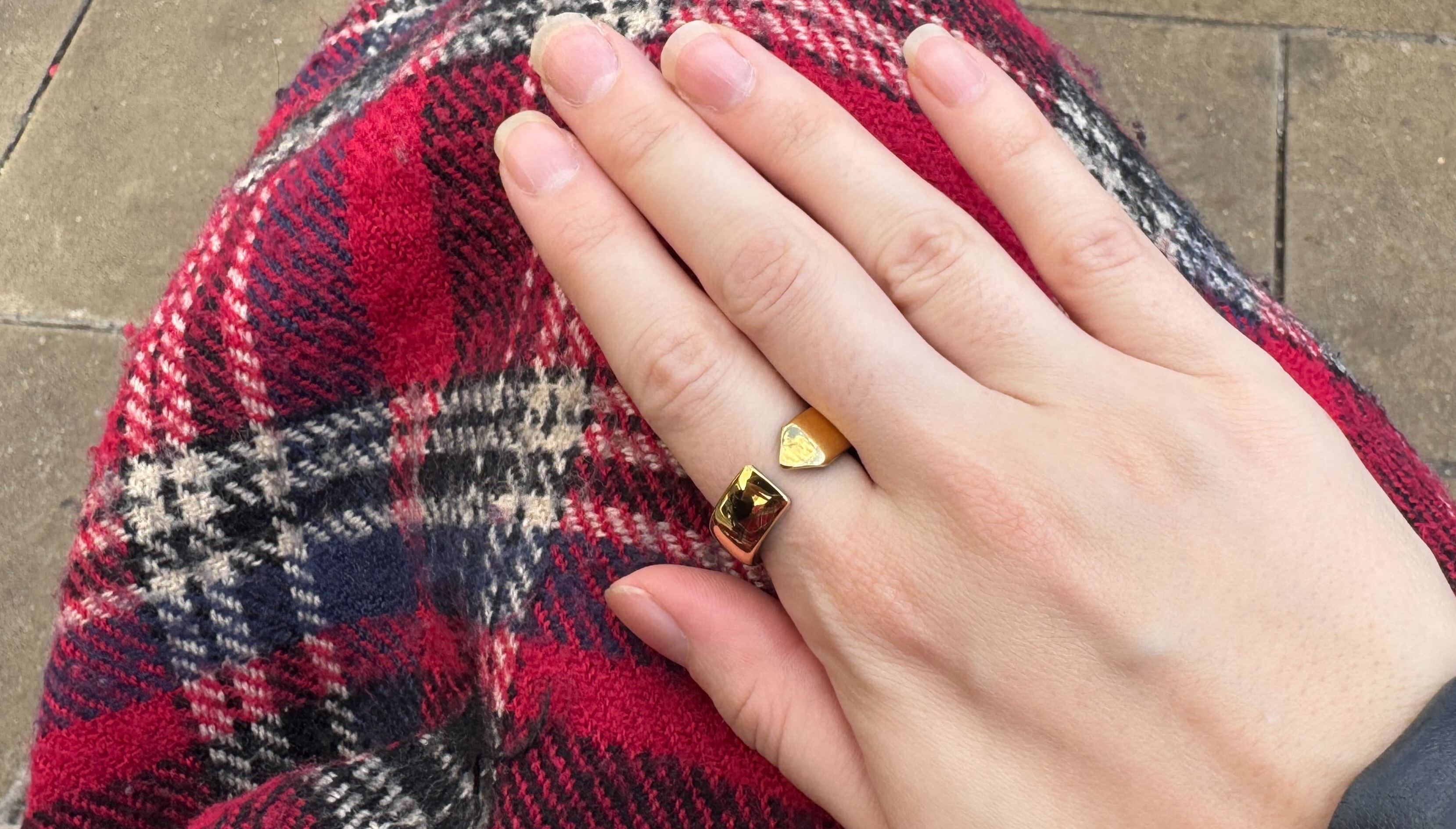
- Open design to allow for bloating
- Kitted with three notched sensors
- Up to one meter waterproofing
Arguably the standout feature in Evie’s toolkit is its design – it’s an open band that can accommodate the micro-fluctuations in finger thickness that occur throughout a woman’s cycle (or even just throughout the day!). It’s a thoughtful inclusion that no other smart ring on the mass market has considered, and especially as I approach my period it’s a godsend.
This does come with a trade-off, in that the ring’s hardware has to be crammed into a smaller area. For my very slim fingers, it’s a little on the thick side, meaning that when I wear it on my index finger and I’m using my phone it can really dig in, and I’m quite aware at all times that I’m wearing it. However, that’s fairly standard across smart rings I’ve worn, and the open design massively improves comfort compared to those. I also find the gap means the ring gets caught in my hair a lot, which can be a little grating, but it’s dense enough that I haven’t noticed it catching and pulling on my clothes, at least.
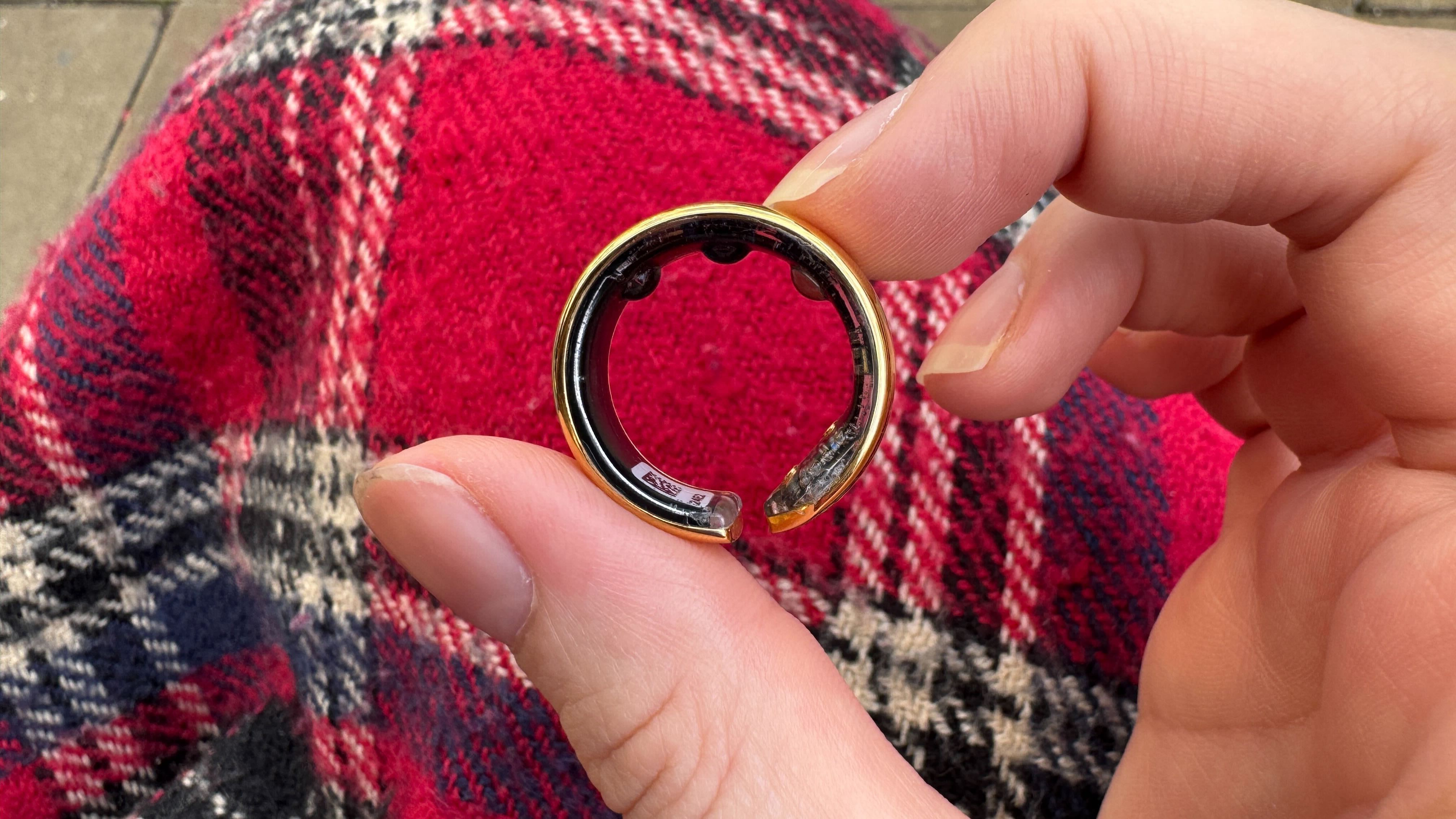
My review unit was the gold colorway, which looks just gorgeous; most people didn’t even realize that it was a smart ring, and at least one person thought I’d been proposed to. However, its titanium PVD coating does scratch fairly easily; after just a week of wear, I noticed a small scratch on its surface. It’s a shame, as the ring is waterproof for up to one meter of submersion, meaning you can wear it while showering and doing the dishes, so it’s otherwise pretty hardy.
On the inside of the ring are three notches housing the sensors; a three-axis accelerometer, infrared as well as red and green LEDs used by the PPG sensors, and skin-temperature sensors. It also comes with a ring-box charging case which is a little more plasticky and cheap than I’d ideally like for an otherwise beautiful product.
Evie Ring: Features
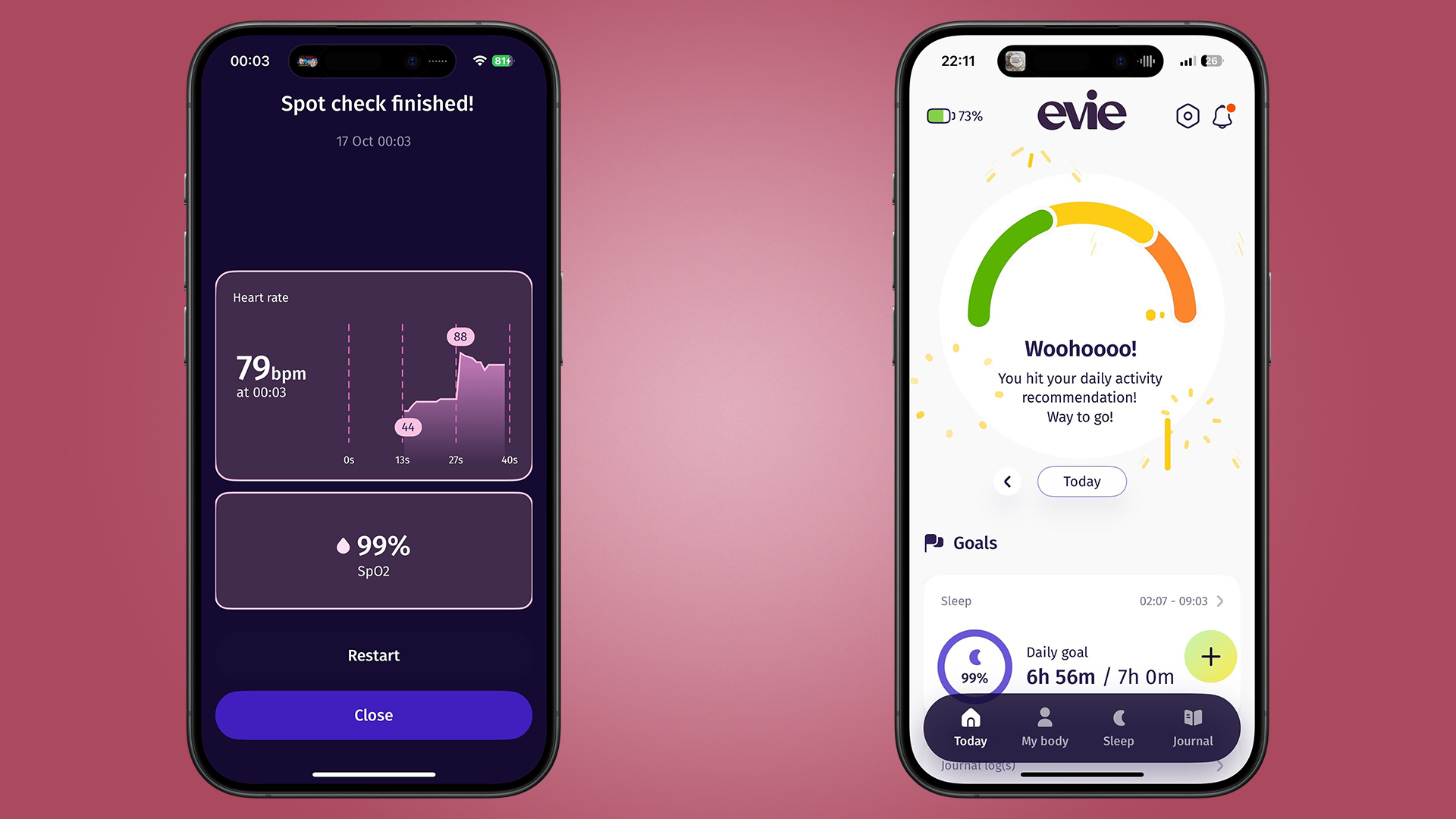
- Blood oxygen and heart rate monitoring on-demand
- Menstrual tracking is limited
- Workout tracking very basic
The Evie Ring offers a fairly well-rounded feature set, offering vital metrics like heart rate and blood oxygen levels on-demand through its Spot Check feature, as well as constant heart rate monitoring throughout the day. While you sleep it also analyses time spent in different sleeping zones, and in addition to tracking your heart rate and blood oxygen levels it will measure your heart rate variation average, respiration rate average and skin temperature variation average; however, these are presented as static figures rather than graphs you can extrapolate from and explore.
In terms of activity tracking, the Evie Ring can track your steps and workouts. Auto-workout detection is planned for early next year, but for now you have to use the app to tell Evie that you’re about to work out for a set amount of time. However, you can’t specify what kind of workout you’re doing, meaning granular insights into how different forms of exercise affect your vitals aren’t possible. It logs your active minutes and estimated calories burned, informing its algorithms with your menstrual cycle data to give more accurate readings.
Otherwise, the standout feature is the app-based journal feature, which tracks your menstrual cycle and symptoms. In addition to noting your energy levels and mood on a scale of low to high, you can also note your general mood with one of 13 tags, albeit fairly arbitrary ones, as well as your menstrual flow level (from light to heavy), symptoms, vaginal discharge consistency, and any other stressors like alcohol, illness, injury, travel, or stress.
However, there’s lots that Evie doesn’t do, and a few areas where I feel it’s a little misleading; for instance, menstrual cycle tracking. While smart rings like the Samsung Galaxy Ring use skin temperature data to predict your cycles, Evie’s app seems to solely rely on your logging to predict your next period, much like many standardised menstrual tracking apps.
Most frustratingly, while the Evie can measure all of the data points mentioned above, it falls short in the analysis and presentation of the data across the board. Its biggest competitors offer all kinds of learnings off the back of the user’s health data; Evie doesn’t deliver helpful insights or analysis into trends. There’s also no way to log specific events at certain times of the day, and while the sleep stage graph is useful, there’s no suggestion on what it means or how to improve your sleep.
Plus, there’s no inclusion of features like an energy score, and for me this is a huge missed opportunity, given that menstrual symptoms can impact our sleep as well as our readiness for activity, and that some studies have shown hormone and iron levels can, too.
Evie Ring: Performance
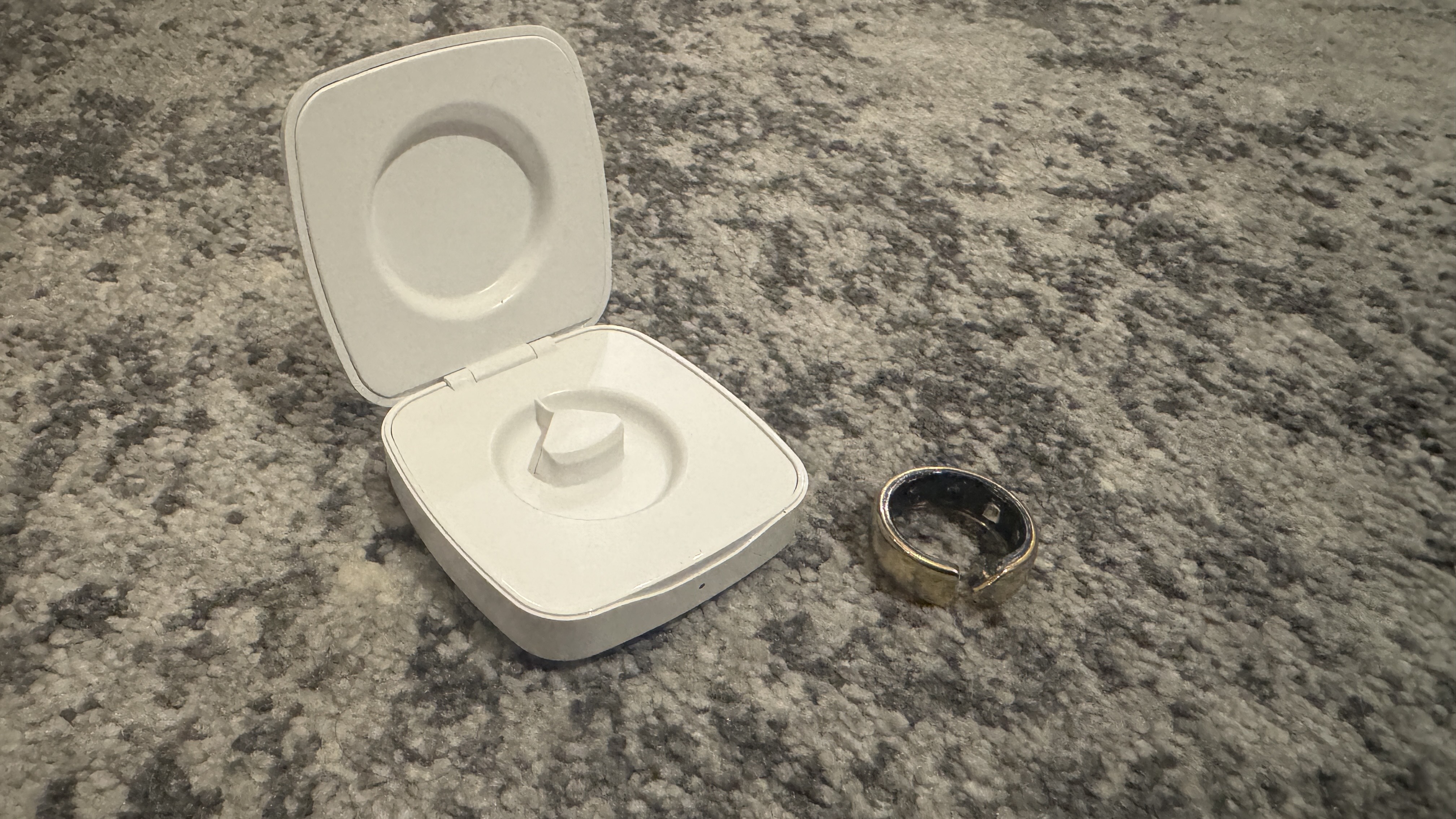
- Battery performs as described, but it’s short anyway
- Lack of meaningful data analysis
- Some metrics lack context
Performance is another mixed bag for the Evie Ring. On the one hand, it does broadly deliver on all the fronts promised by manufacturer Movano; however some of the specs and features aren’t quite on a par with its biggest competitors.
Once you’ve paired and set up your ring, you’ll choose three goals to work towards from five options: steps, workout sessions, mood & symptom tracking, sleep, and active minutes. I chose the latter three, as my main focus right now is general wellness and mental health as opposed to training and fitness.
On the home page of the app you’re greeted by an Apple Fitness-style ring, which is filled as you complete your daily goals. As someone who’s suffered the negative impacts of calorie counting I didn’t love that calories burned was a fixed category here, but broadly speaking I think Evie does very well at sensitively handling the journey towards wellness and celebrating wins. I particularly like the journaling element of the app, and I found it useful to go back and see if I’m regularly particularly anxious or low-energy in the days before my period.
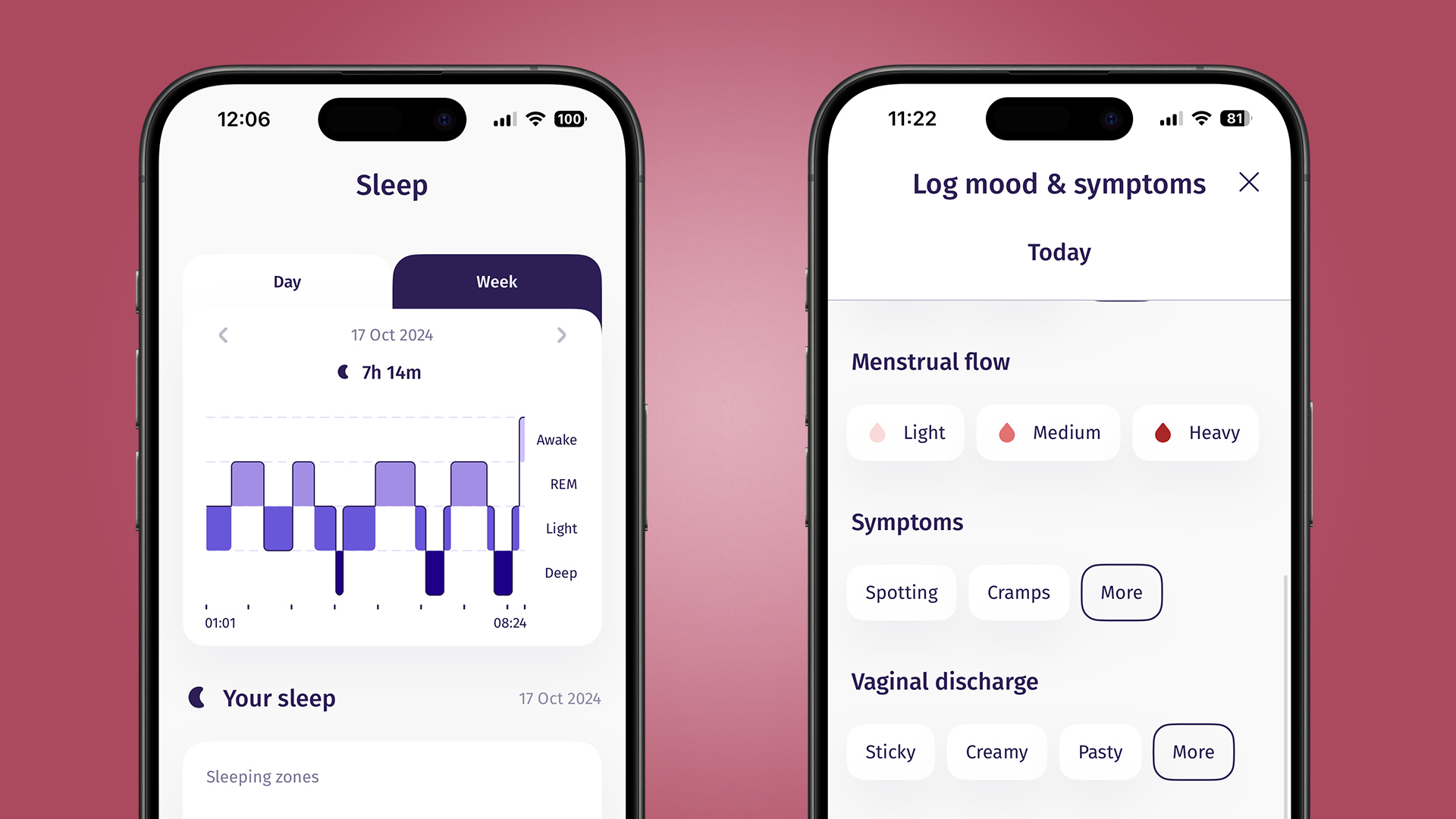
There’s a slight delay in data synchronization between the ring and the app, which can be mitigated somewhat by keeping the app open at all times; however, there were a few instances where it didn’t generate my sleep data at all until later in the day. Evie also can’t tell when I’m taking a nap, only logging sleep between 9pm and 10:30am, and there’s no option to force-track sleep, which left my sleep count completely skewed a few times. Similarly, a few times I had disturbed sleep where I awoke for an hour before falling back asleep, and Evie didn’t log the further sleep session.
The data that does register in the app also isn’t always the most useful; sure, I get my nightly temperature variation while I sleep, but it’s an average rather than an hour-by-hour report, and you only get it as part of your sleep metrics. There’s little-to-no analysis provided, whether that’s trends or suggested improvements, which again diminishes the actual impact the ring has on your health and wellness. Still, at least the data does seem to be mostly accurate; I tested the Evie Ring against my Apple Watch Series 5, and both my BPM and sleep stages broadly lined up, though the Evie Ring routinely struggled to identify deep-sleep stages, implying that I got an average of 10% deep sleep per night versus the 20% my Apple Watch registered.
Its battery life is shorter than much of its competition too; Movano advertises this as 4+ days, but generally mine lasted just shy of that unless I had a fairly inactive week. There’s also no integration with other health or menstrual tracking apps, which is a huge missed opportunity given the lack of actionable health insights generated by Evie.
Evie Ring: Scorecard
| Category | Comment | Score |
|---|---|---|
| Value | One of the most affordable options, but limited in capabilities. | 4/5 |
| Design | Thoughtful, beautiful and well-made, barring cheaper box. | 4/5 |
| Features | Potential is there, but all features are quite basic | 3/5 |
| Performance | Broadly accurate where it counts, but minimal analysis offered | 3/5 |
Evie Ring: Should I buy?
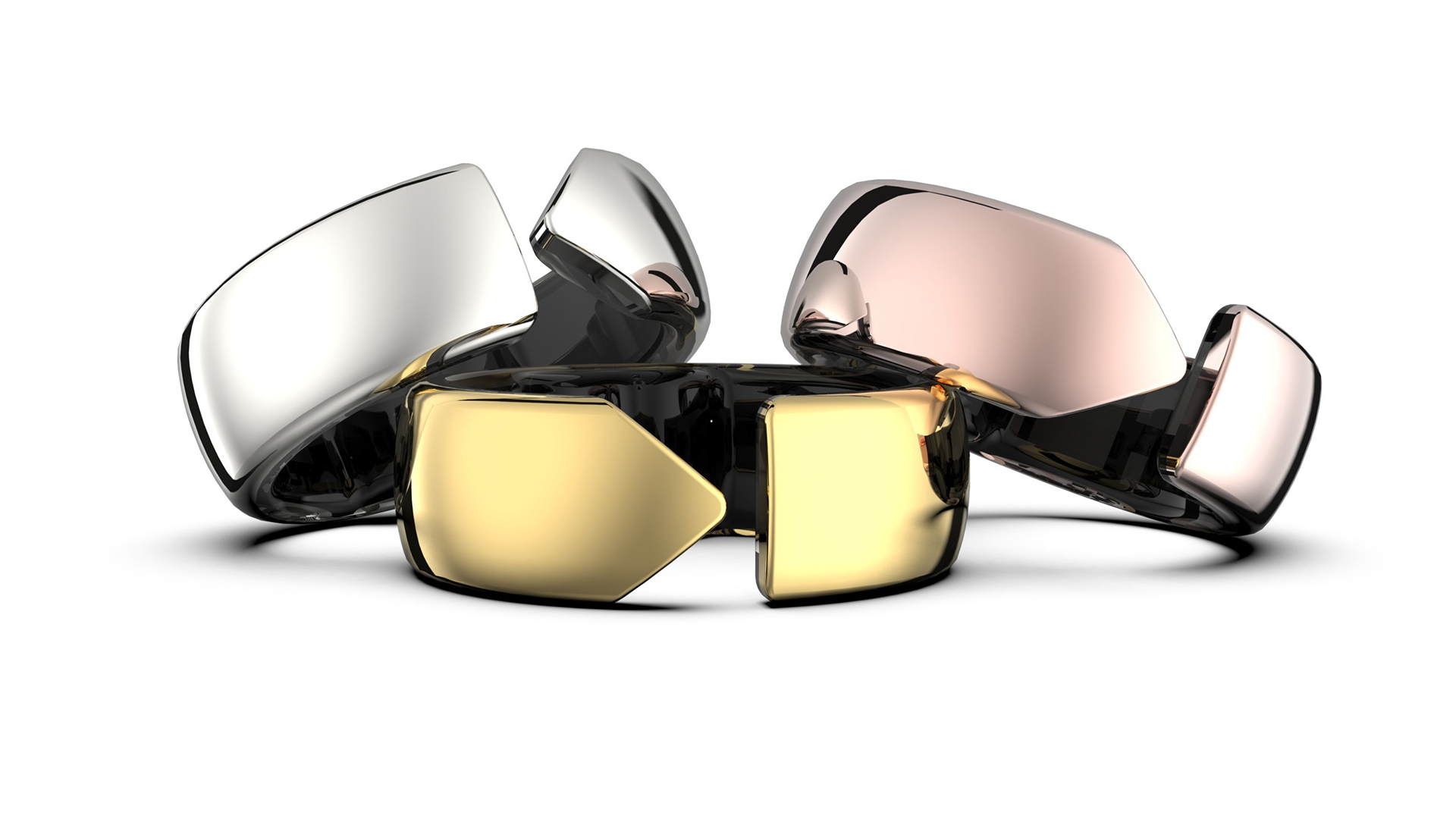
Buy it if…
Don’t buy it if…
Also consider
| Component | Evie Ring | Oura Ring 4 | Samsung Galaxy Ring |
| Price | $269 | From $349 / £349 / Around AU$650 | $399 / £399 / around AU$750 (AU prices TBC) |
| Colors | Gold, Silver, Rose Gold | Black, Silver, Brushed Silver, Gold, Stealth, Rose Gold | Black, Titanium Gold, Titanium Silver |
| Material | Titanium PVD coating | Titanium | Titanium |
| Weight | 3.2-3.7g depending on ring size. | Between 3.3 (size 4) and 5.2g (size 15) | 2.3g (size 5) 3.0g (size 13) |
| Battery life | Up to 4 days | Up to 8 days | Up to 7 days (ring), up to 6 charges (cradle) |
| Connectivity | Bluetooth | Bluetooth | Bluetooth 5.4 |
| Sensor array | PPG, accelerometer, skin temperature | Smart Sensing array | PPG, accelerometer, skin temperature |
| Water resistance | 1ATM | 10ATM | 10ATM |
| GPS? | No | No | No |
How I tested
I wore the Evie Ring for two months to assess its menstrual tracking features and carry out comprehensive testing. For instance, I drained the battery down completely multiple times and timed recharging, and slept with it on almost every night. In terms of exercise, I did cardio HIIT workouts at home and went on a few runs, and compared all available health metrics to an Apple Watch 5. I used all of the app features such as journaling and goal-setting.

